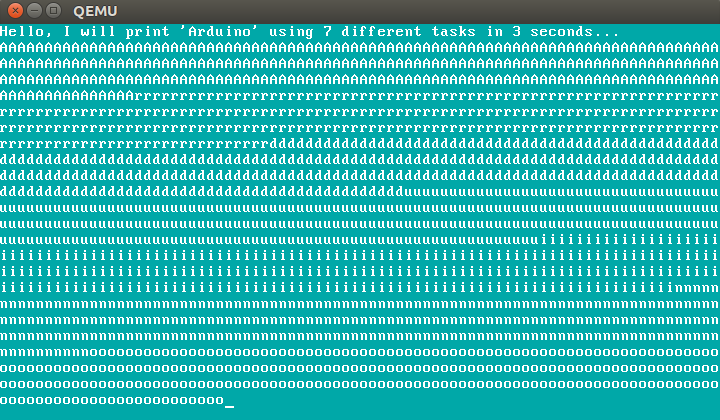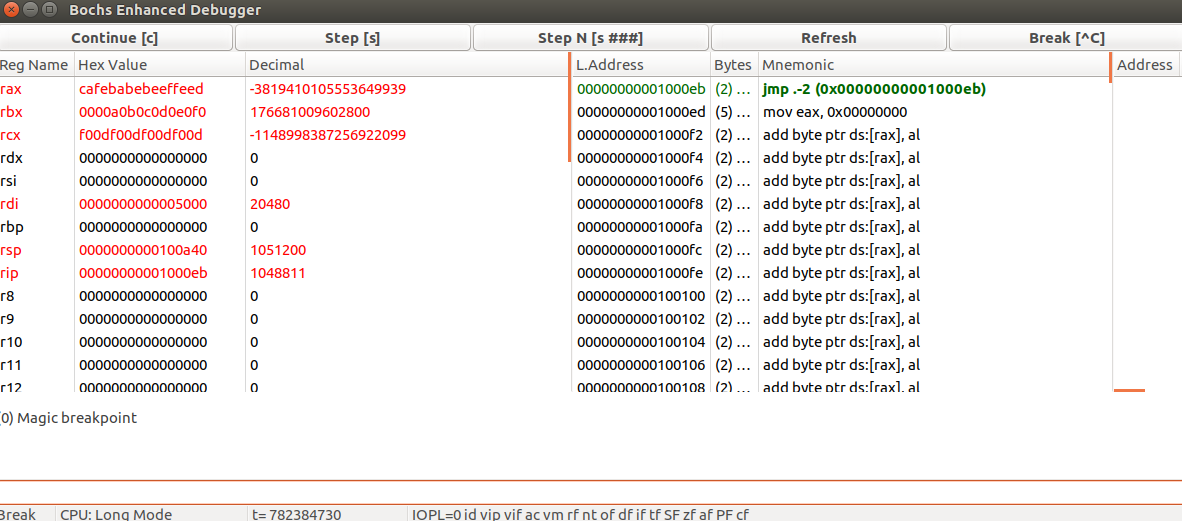(After asking ridiculous amount of questions)

The seven tasks are loaded from seven ELF binaries that prints A, r, d, u, i, n, o 255 times respectively that compiled with my i686-agola os specific toolchain.

Nice to see that beast finally working. After all those questions.Agola wrote:Finally, finally I have a stable but still-needs-to-be-improved multitasking implementation.
(After asking ridiculous amount of questions)
The seven tasks are loaded from seven ELF binaries that prints A, r, d, u, i, n, o 255 times respectively that compiled with my i686-agola os specific toolchain.
Yes, I've a very basic mutex implementation. I've implemented async message passing also but it is not *very* stable and it is very very ugly. I'm working on signals now, but it is kind of hard though.Octacone wrote:Nice to see that beast finally working. After all those questions.Agola wrote:Finally, finally I have a stable but still-needs-to-be-improved multitasking implementation.
(After asking ridiculous amount of questions)
The seven tasks are loaded from seven ELF binaries that prints A, r, d, u, i, n, o 255 times respectively that compiled with my i686-agola os specific toolchain.
Does it support any kind of synchronization or message passing or resource sharing?








Make sure you get get higher-half mapping working asap. It'll save you a lot of bother further down the roadAgola wrote:I'm porting Agola to 64-bit, after two hours of work, I've finally entered long mode. I will be able to load my kernel fully after building a 64-bit IDT and rewriting the paging code for 64-bit. Seperating arch specific things and common things in Makefile design before helped me a lot.